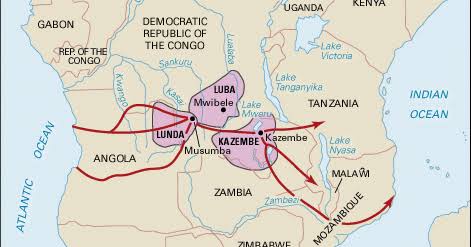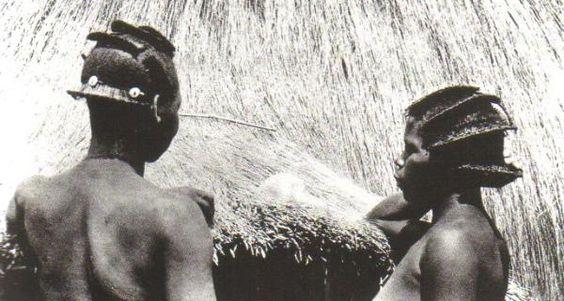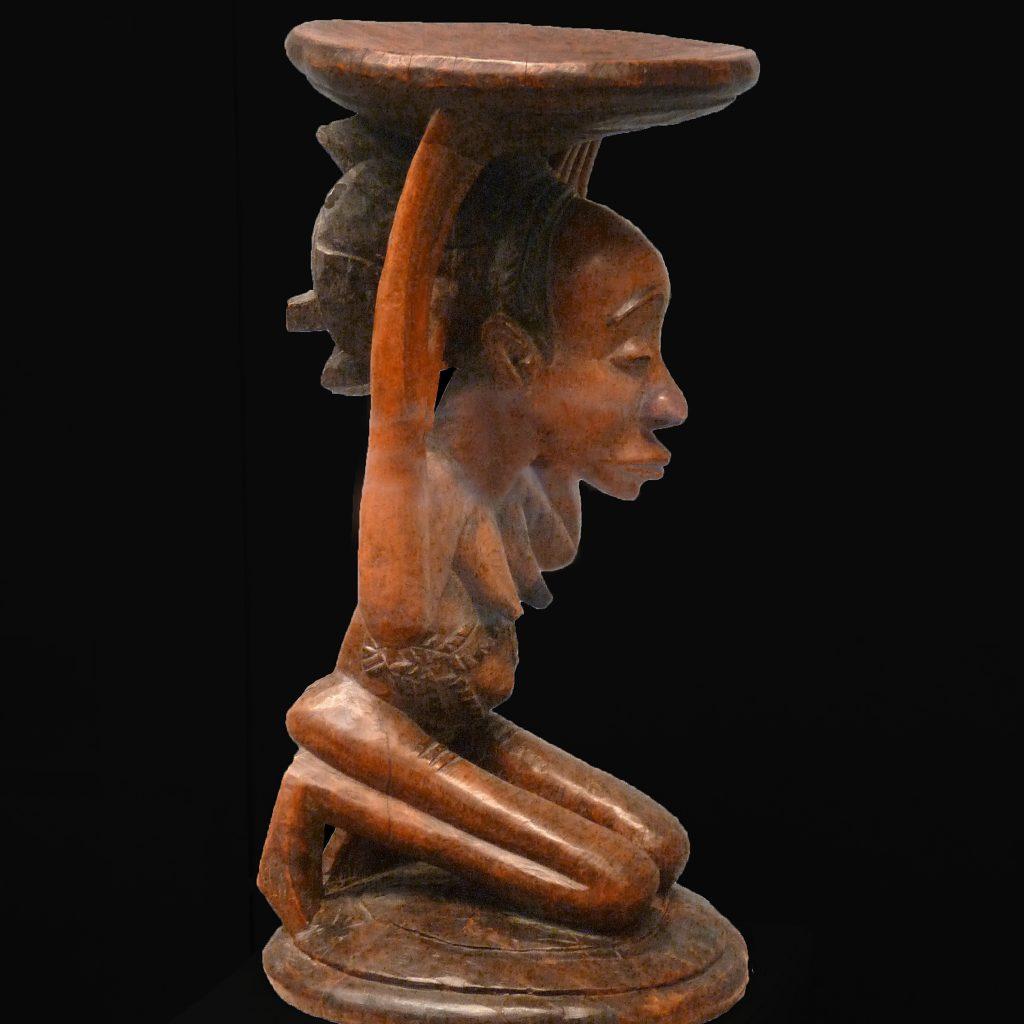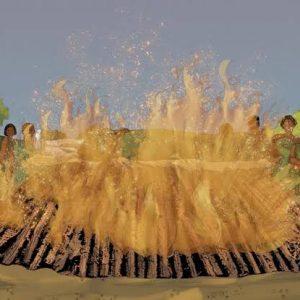The DRC is a country with a rich history. We find of course several kingdoms and empires that have shaped the Congolese culture of today. In this part of Congotalks243 dedicated to Congolese history, we will discover one of the greatest empires of Central Africa, the Luba Empire.
The Luba empire origins
The Baluba people would have originated from the village Nsanga Lubangu in the region located next to Lake Kisale and Lake Upemba; but according to the history books of the Democratic Republic of Congo, this region was uninhabited, and it was the Bantu who immigrated from the North and settled in Central Africa. That is why the Luba language, Kiluba (currently spoken in Kabongo in the province of Lomami) and Tshiluba (currently spoken in the province of Kasaï) where from Bantou people
The location of the Luba kingdom
The Baluba (the people of the Luba Empire) were located in the south of the present Democratic Republic of Congo, half of Katanga. The Luba Empire extended along the Lwalaba Basin and its major tributaries the Lomami, Lubilanji, Luvua or Lovoi and Lubudi. Currently the Luba people are located in Kabongo, Lomami, Kamina, Kaniama, Bukama, Manono, Malemba Mitwaba, Pweto, Kabalo, part of Central Kasai etc.

The Luba Empire history
The Luba empire was founded by Nkongolo Mwamba around 1500, he came from Basonge or Bayembe. The empire was located in the Eastern part of the Kasaï river just around the Headwaters of Lualaba. He was a powerful and ambitious man, living with two sisters whom he had taken as wives, Mabela and Bulanda. He imposed his domination in many territories. According to the priest ( priest or Kitobo named Mujibu wa Kalenge was an intermediary between Baluba and their god Nvidye, a spiritual advisor), he had made himself king without the permission of Nvidye Mukulu (the God or supreme spirit) so he did nothave the Bulopwe (royal power).

It was then that a foreigner, Mbidi Kiluwe son of King Ilunga Kiluwe of the East Lualaba kingdom the Bupemba came and married the sisters Mabela and Bulanda of Nkongolo Mwamba. The foreigner Mbidi Kiluwe returned home where he became king but left Bulanda and Mabela. Bulanda gave birth to a child whom she named Ilunga Mbidi Kalala who killed his uncle King Nkongolo Mwamba and took over the power as he was elected by the Nvidye and held the Bulopwe (royal power). He was the first recognised king of the Luba empire or the first Luba Mulopwe (Empire’s King).
Ilunga Tshibinda one of the brothers of Ilunga Kalala Became the King of Lunda Kingdom by marrying the princess Lweji or Rwej because he didn’t approve of the succession’s war
Culture and tradition of Baluba people
The Luba culture was based on sculptures and wood carvings. The sculptures of the Luba traditions were represented by women with water gourds, pregnant women, swords, specters, arrow holders, masks and drums. However, the Baluba were known more as warriors than as artists. They lived from fishing and agriculture.

The women were not permitted to talk when men were talking. When a woman was menstruating she was obliged to stay in a hut outside the courtyard until she finished… Men also respected women in a certain way
Luba Political System
The chiefdoms grouped in provinces formed the kingdom, the succession was patrilineal. In each chiefdom, there was a chief appointed by a hierarchical committee. The capital, where political decisions were taken, was at Mwibele in the present day Kabongo in the province of Haut Lomami.
The Luba economy
The Baluba economy was based on a feudal system, with the nobles holding a monopoly on trade. The Baluba were able to develop an economy based on trade between different countries very quickly. Metallurgy, copper, and salt were very important sources of income for the Baluba
The success of the Luba kingdom
The Luba empire had its moments of glory under the reign of the monarchs Ilunga Songu (1780-1810), Kumwimba Ngombe (1840) and Ilunga Kabale.
The Luba Empire decline
The war of succession between the two brothers
Like other brothers in the royal lineage, one had to either kill one’s brother or drive him out. The strongest one remained in power. The biggest war that took on a colossal scale was that between Kabongo and Kasongo wa Nyembo. Kasongo-a-Nyembo allied himself with the forces of Bayeke with M’siri the chief and his brother Kabongo allied himself with the forces of the Batetela. This is how the kingdom was divided into two chieftaincies by the Belgians: the southern region was occupied by Kasongo wa Nyembo and the northern by Kabongo.
The slave trade
The Arab-Swahili slave trade contributed to the fall of the tribes of the Luba Empire. With the help of Baluba warriors, the Belgians were able to repel the slave traders.
The Belgian penetration
The destruction of the Luba culture and tradition by the Belgian colonial authorities led to the complete disappearance of the empire. After provoking jealousy between the Baluba of Kasai and Balukat (Baluba of Katanga), they were able to obtain diamonds, copper, and other precious materials.
CONCLUSION
The LUBA empire is an empire from the south of the Democratic Republic of Congo, founded by Nkongolo Mwamba in the 1500s. It had as its first recognized Sovereign Bulopwe (King) Ilunga Mbidi Kalala. The Baluba had their success under the reigns of the Monarchs Ilunga Nsongu, Ilunga Kabale and Kumwimba. The Luba empire fell due to the war of succession, the slave trade, and Belgian colonialism. The Baluba people can be found all over the present day Democratic Republic of Congo, mainly in provinces like Kasai, Katanga and Maniema.
Want to know more about the DR Congo in general? We recommend you follow us on your favourite social media platforms: Instagram (@congotalks243 and @yafelie), Twitter (@congotalks243), TikTok (@yafelie and @congotalks243), Facebook (@CongoTalks243) and LinkedIn (@CongoTalks243), and subscribe to our YouTube channel.
✅ How to support our works: PAYPAL: https://paypal.me/CongoTalks243
For business inquiries related to CongoTalks243, you can reach out at info@congotalks243.com.



